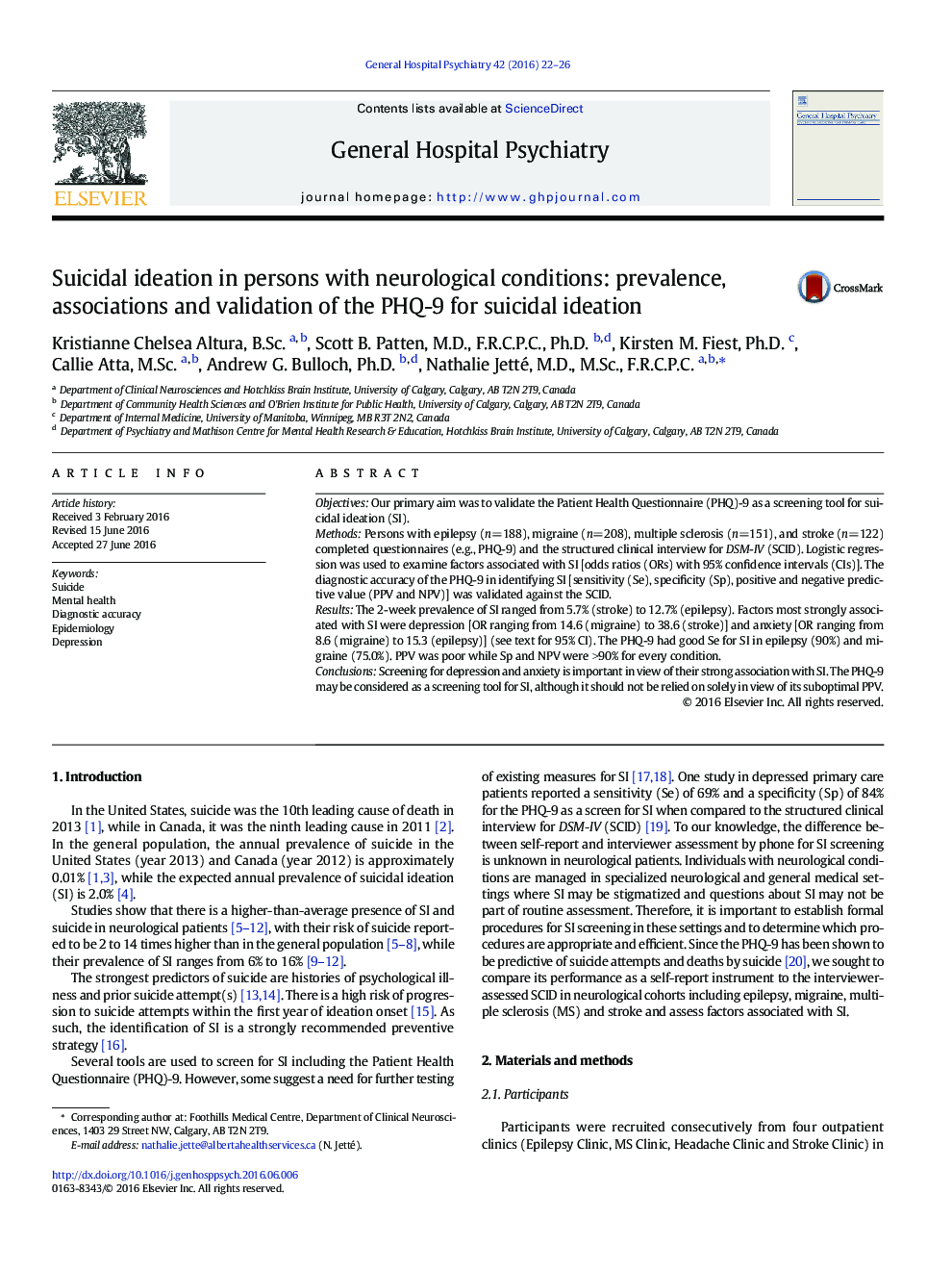| Article ID | Journal | Published Year | Pages | File Type |
|---|---|---|---|---|
| 3237526 | General Hospital Psychiatry | 2016 | 5 Pages |
ObjectivesOur primary aim was to validate the Patient Health Questionnaire (PHQ)-9 as a screening tool for suicidal ideation (SI).MethodsPersons with epilepsy (n=188), migraine (n=208), multiple sclerosis (n=151), and stroke (n=122) completed questionnaires (e.g., PHQ-9) and the structured clinical interview for DSM-IV (SCID). Logistic regression was used to examine factors associated with SI [odds ratios (ORs) with 95% confidence intervals (CIs)]. The diagnostic accuracy of the PHQ-9 in identifying SI [sensitivity (Se), specificity (Sp), positive and negative predictive value (PPV and NPV)] was validated against the SCID.ResultsThe 2-week prevalence of SI ranged from 5.7% (stroke) to 12.7% (epilepsy). Factors most strongly associated with SI were depression [OR ranging from 14.6 (migraine) to 38.6 (stroke)] and anxiety [OR ranging from 8.6 (migraine) to 15.3 (epilepsy)] (see text for 95% CI). The PHQ-9 had good Se for SI in epilepsy (90%) and migraine (75.0%). PPV was poor while Sp and NPV were >90% for every condition.ConclusionsScreening for depression and anxiety is important in view of their strong association with SI. The PHQ-9 may be considered as a screening tool for SI, although it should not be relied on solely in view of its suboptimal PPV.
